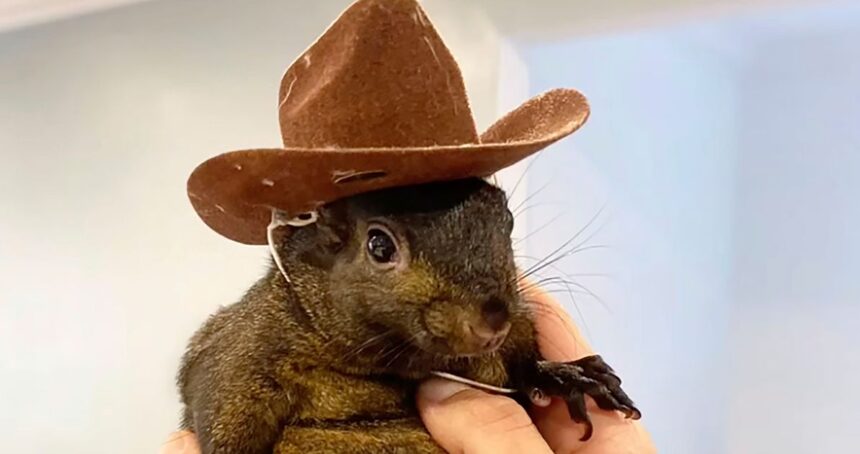After being at the center of a national controversy, Peanut, the social media star squirrel, has tested negative for rabies, according to a county official. The squirrel, along with a raccoon named Fred, was seized from Mark Longo’s home and animal sanctuary in upstate New York by the state Department of Environmental Conservation. The agency received complaints about illegal wildlife keeping and potential safety concerns, leading to the seizure. However, the decision to euthanize the animals for rabies testing has sparked outrage and criticism.
Chemung County Executive Chris Moss announced that both Peanut and Fred tested negative for rabies during a news conference. This news comes as a relief to Peanut’s many followers on platforms like Instagram and TikTok, where he had gained a substantial following over the years. Longo, who had taken Peanut in after his mother was tragically killed in New York City, had been in the process of getting him certified as an educational animal before the seizure.
Despite the negative test results, Longo expressed disappointment in the government’s handling of the situation. He criticized the decision to euthanize the animals and questioned the necessity of such drastic measures. Longo stated, “It’s no real big shocker to me, considering I lived with Peanut for seven-and-a-half years and Fred for five months. I’m not foaming at the mouth. I knew the test results were going to be negative.”
The DEC has acknowledged the backlash and announced that they are conducting an internal investigation. They are reviewing their policies and procedures to ensure that similar situations are handled more effectively in the future. The incident has sparked a debate about the treatment of exotic animals and the role of social media in raising awareness about wildlife conservation.
Overall, the saga of Peanut the squirrel highlights the complex relationship between humans and wildlife, as well as the power of social media in shaping public opinion. As Peanut’s story continues to unfold, it serves as a reminder of the importance of responsible animal care and the need for transparent communication between authorities and the public.






